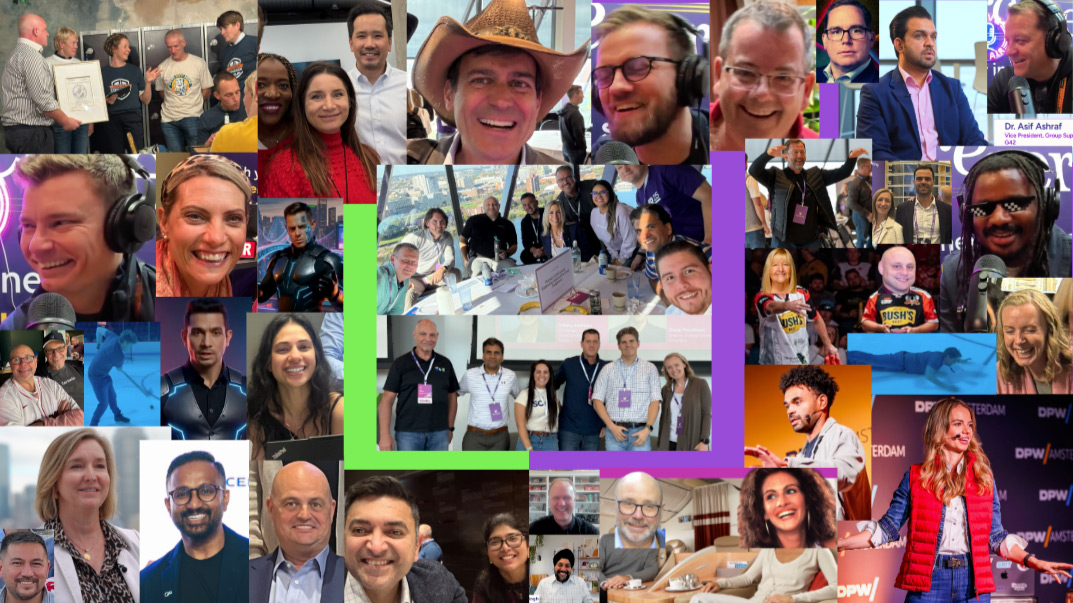Procurement leader spotlight with Mahmood Shah
Next up in our Procurement Leader Spotlight blog series, we sat down with Mahmood Shah to talk about all things procurement, automation, RPA, and the skills needed to succeed as a procurement leader.
Mahmood Shah has over twenty years of experience in strategic sourcing and supply chain management. He has successfully led the digital transformation for Fortune 50 financial services companies for their source-to-pay processes. Currently, Shah is the VP of Procurement and Supply Chain Management at SGS.
Q: How did you get into procurement?
A: I studied mathematics as well as supply chain management at two universities, and one of my first roles was in the automotive industry where I managed the inbound supply of steel. All my subsequent roles since then have been within supply chain management or within procurement.
I’ve gained experience across a wide spectrum of industries, including the automotive industry, retail, marketing, airline, and financial services and I'm now actually at a company [SGS] that has nine distinct business lines.
Q: Over the last 5-10 years, what are the most impactful changes you have seen in procurement?
A: This is a good question because it really makes me think about my own journey and how far we've come as a profession. I think the most impactful change, for me, would be technology proliferation.
When you think about how we collect, manage and manipulate data and how that's changed, its amazing—we've moved from Excel and Access based analysis to machine learning tools that can improve data quality and provide real insight and that's not taking anything away from all the other software tools out there from managing contracts, managing risk, data mining and all the S2P suites that are available as well. All of these have become, or are becoming, mainstream services.
The second one for me is social responsibility. I believe this has become more important over time. We’ve all recently come through an economic crisis, and we continue to see things like climate change and the current geopolitical concerns that have been playing out in the media. Having a focus on corporate social responsibility is important as they impact consumer confidence and the levels of trust in business.
And then the last one for me is the demand for procurement talent. When I started my career, procurement or supply chain management was not an area that really attracted most people and was not considered an important function within an organization. One of the ways (an interesting way) to look at the importance that an organization places upon skilled procurement professionals, I think, is to look at procurement wage growth. ISM has been running salary surveys for the last several years now. What you'll find is, salaries have been on an upward trend within procurement and the last reported decrease was back in 2013. In an environment of low unemployment, the procurement profession is in high demand and has definitely improved its value perception.
Q: Where do you see the procurement industry going over the next five years?
A: Digital transformation—everyone's talking about it, but very few procurement organizations are actually implementing RPA. I think procurement, in general, will become leaner and will reside closer to the stakeholders in the business. The focus will be on personalized self-service options as I believe the expectations we have when we buy products and services in our personal lives is a key driver to the changes we want to see in our professional lives.
I always give the example of the Amazon Go. The customer experience is amazing. You walk in, you pick up whatever you want, you put it in your pocket or your bag and you walk straight back out. When you consider what procurement usually asks you to do prior making a purchase—the hoops we asked you to jump through, the forms we asked you to fill out, long drawn out RFP processes, etc.—I believe technology will have a huge impact and, a lot of these requirements will no longer be necessary with the advent of some of the technology that's becoming available.
Secondly, I know we talked about social responsibility, but I think that's going to dominate the agenda as well. Transparency into real-time supply chain risks and being able to better anticipate fast-changing expectations in society will help corporations proactively take action and can help identify new markets and create real opportunities for growth.
Lastly, procurement must deliver value other than just savings. Functions that generate revenue and top-line growth are generally viewed by organizations as far more strategic and valuable to the company than those that look at the bottom line, which is where procurement normally resides and I think that's where we can really play a large role as well.
Q: What skills do you think the future leaders of procurement need to be successful? What advice would you give them?
A: I think people need to broaden their skill sets, the softer skills will be just as important, if not more so, in the future. Focus on developing skills that enable you to build relationships, adapt your influencing style and enhance your cultural awareness. However, to be able to take advantage of current data analytical tools I believe financial acumen will also be key.
Q: AI, ML, RPA—all these new technologies pose a big challenge for procurement professionals. Can you share some keys to success for implementing these new technologies successfully?
I've developed my own playbook for digital transformation. The technologies that we're talking about here are a real catalyst for change, but to really harness those benefits, it all centers around leadership. Leadership really needs to understand the value that digital transformation is going to bring to the table. They need to have a very good understanding of the S2P process and the opportunities that exist within it. Without a vision, a technology roadmap, a culture that encourages failing fast to learn from mistakes, you're not going to derive the maximum benefit from these technologies.
The second is change management. Most people really underestimate the level of change management that's required when you implement any of these technologies. The business cases are usually centered around FTE reduction and not really focused on freeing up capacity, this can be extremely short-sighted and can in fact hinder your ability to re-organize effectively. I read a recent McKinsey study that said half of all procurement activities could be automated! I might dispute that number, but it's still indicative of what's possible in this area.
Q: Extra Credit—what is a trick for procurement leaders to get more spend under management?
A: You can have all the processes, policies and tech in place, but doing the basics well is what really matters. You need to build relationships and demonstrate the value to your key stakeholders to be able to warrant people coming to you. If you're doing the right things, I think people will want to come to you and work with you as well.





